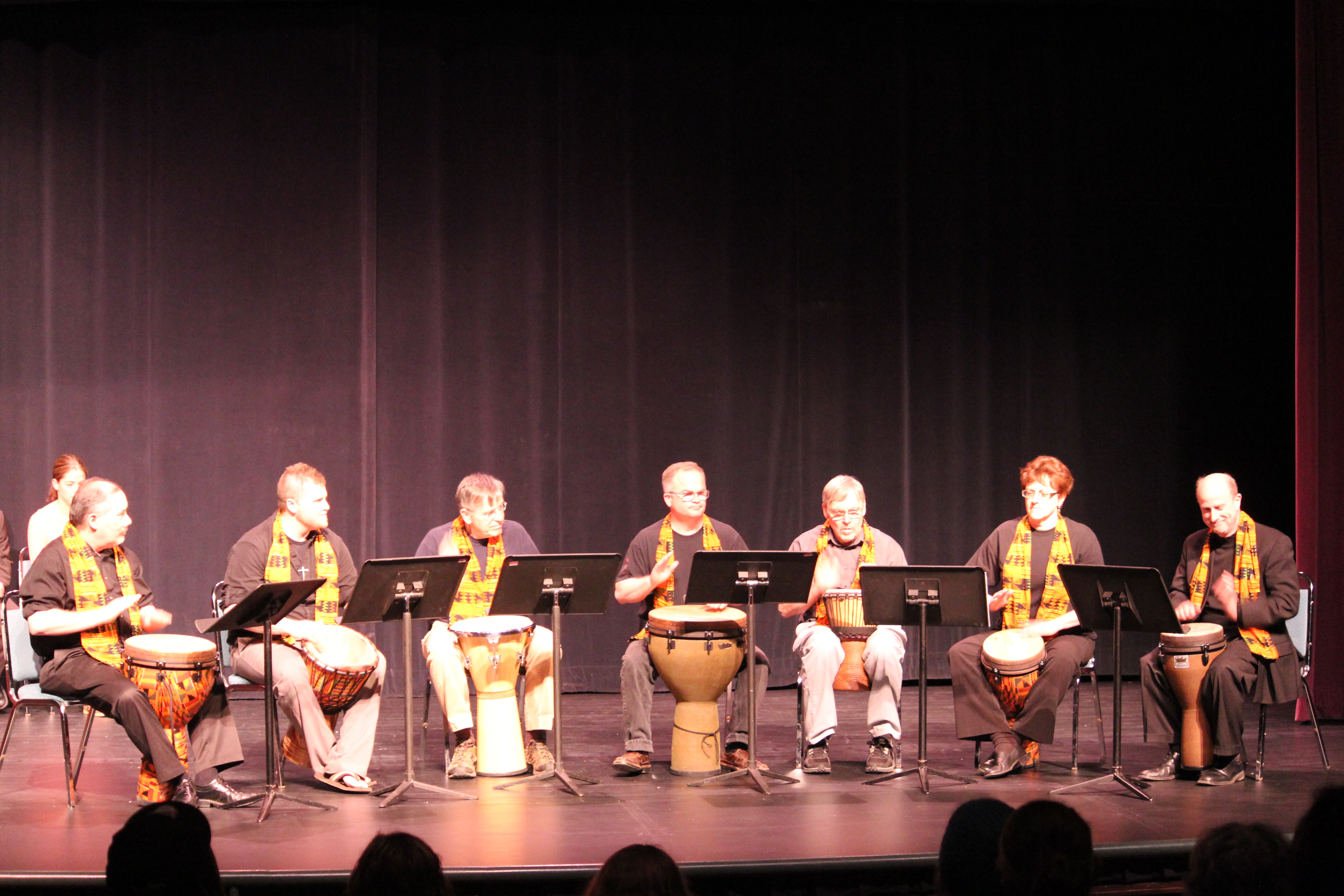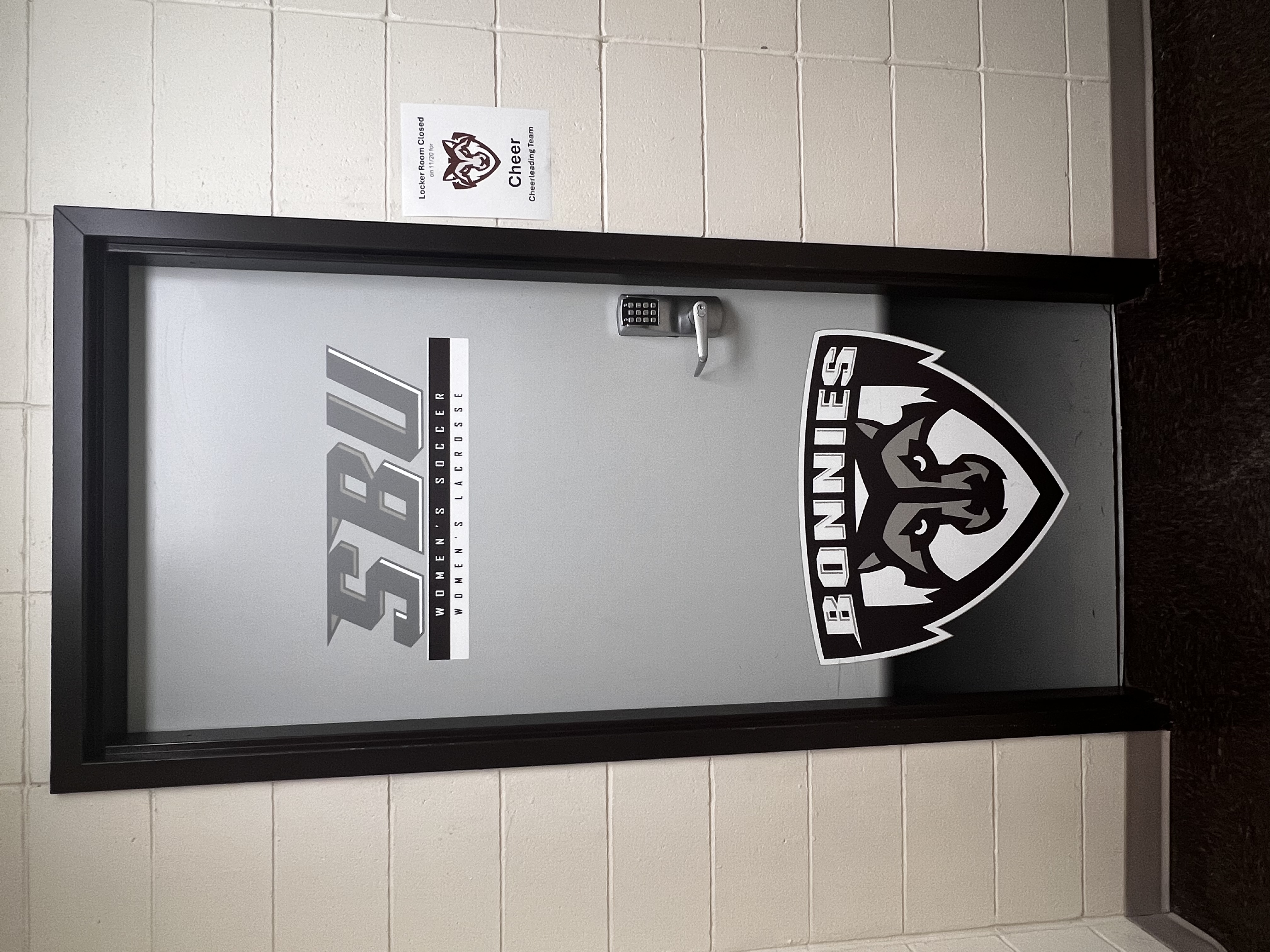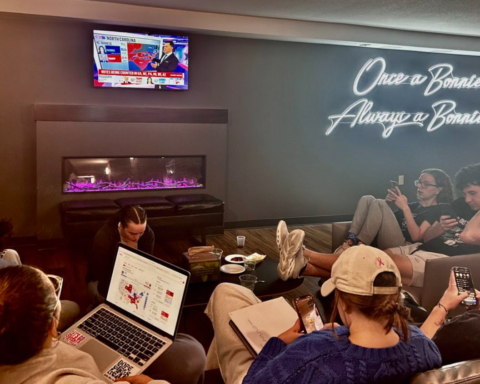By Jackie Roberts
Staff Writer
When the word “genocide” is mentioned, what comes to mind?
Many think of the Holocaust of World War II. Others may be reminded of the Stalinist Soviet Union.
The genocides still occurring today on and off our borders have become a worldwide problem.
This past Monday night, “Drums for Darfur” took place in the Regina A. Quick Center for the Arts to spread awareness of the current social injustices taking place in our world today.
Drums for Darfur focused on genocide in third world countries, mainly centered on Darfur.
Drums for Darfur provided students, staff and visitors information about genocide and human rights violations both internationally and domestically.
Larry Sorokes, associate vice president and executive director of Grants Administration and Lifelong Learning, opened the show. Sorokes introduced the five speakers and a group of drummers from the SBU/Olean African Drum Ensemble.
The drummers, sitting in an African-tribal circle, were the first to present. Moses Mark Howden, adjunct instructor of music, led the drummers. Howden and the supporting musicians brought African culture to the show. They performed after each speaker. A visiting student from Hofstra University, Karen Chlosta, described the drummers as “passionately joyful.”
Della Moore, director of the Bona Buddies program, was the first speaker. Moore also serves as an AmeriCorps volunteer. She spent the 2005- ‘06 academic year teaching English and African-American literature at L’Université Julius Nyerere de Kankan in Guinée in West Africa, according to a St. Bonaventure press release.
Moore’s uplifting words appealed to the audience. She grounded the audience by reminding them that the victims in Darfur are people no different than the students and families here at St. Bonaventure.
“People in Darfur are somebody’s mother, father, son and daughter,” Moore said.
After captivating the emotions of the audience, Moore encouraged individuals to be proactive about informing their peers of genocide and civil injustice.
“Even though I am not a superhero who can physically and financially save Darfur, any man’s death diminishes me because I am involved with mankind,” she said.
The next speaker was Yogini Kothari, doctor of dental medicine and member of the Hindu Society of Olean-Allegany. Kothari followed up on Moore’s beliefs that if one person dies, it affects everyone.
“To lose one life, whether it is on our land or another, it is the same.”
Following Kathari was Barry Gan, professor of philosophy. Gan brought a new perspective to the table at “Drums for Darfur.” He discussed the difference between human obligation and human rights. Human obligation, Gan explained, should be the first priority.
“When we consider human rights as a main concern, people start to believe they are entitled to things,” Gan said. “It becomes an issue of ‘what do people owe me?’ rather than ‘what is my duty to help others?’”
Amber Williams, a freshman journalism and mass communication major, said Gan’s speech really moved her.
“I think I pulled the most away from Gan’s speech,” Williams said. “I left feeling like I, too, had an obligation to do something that betters society.”
The next speaker was Kristen Cappelino, president of Embrace it Africa, who spoke on behalf of the student organization. She explained how Embrace it Africa began five years ago, and now works to provide aid to a small school in Uganda. Ceppelino’s presentation was centered around stopping a group called Lord’s Resistance Army (LRA).The LRA is a group led by Joseph Kony. This group is responsible for Africa’s largest human trafficking and invisible children conflict.
Feraas Jabi, physician of nuclear medicine at the University at Buffalo, concluded the event. Jabi presented the audience with a series of statistics regarding genocide and the people it affects. As a second-generation Syrian, Jabi shared an interesting perspective with the audience. He explained the struggle his family is still enduring because of social injustices taking place in Syria every day.
Jabi concluded the night with a statement that encouraged the audience to take a stance against social injustices and find their way to help.
“I have done what is mine to do, may you do what is yours,” Jabi said.
Ryan McDonough, a freshman journalism and mass communication major, said he appreciated attending Drums for Darfur.
“I gained a greater understanding of the injustice both in our country and around the world,” McDonough said. “My favorite part was the drumming.”
Drums for Darfur served as a way to spread the word about violence and social injustices both in the United States and around the world.







